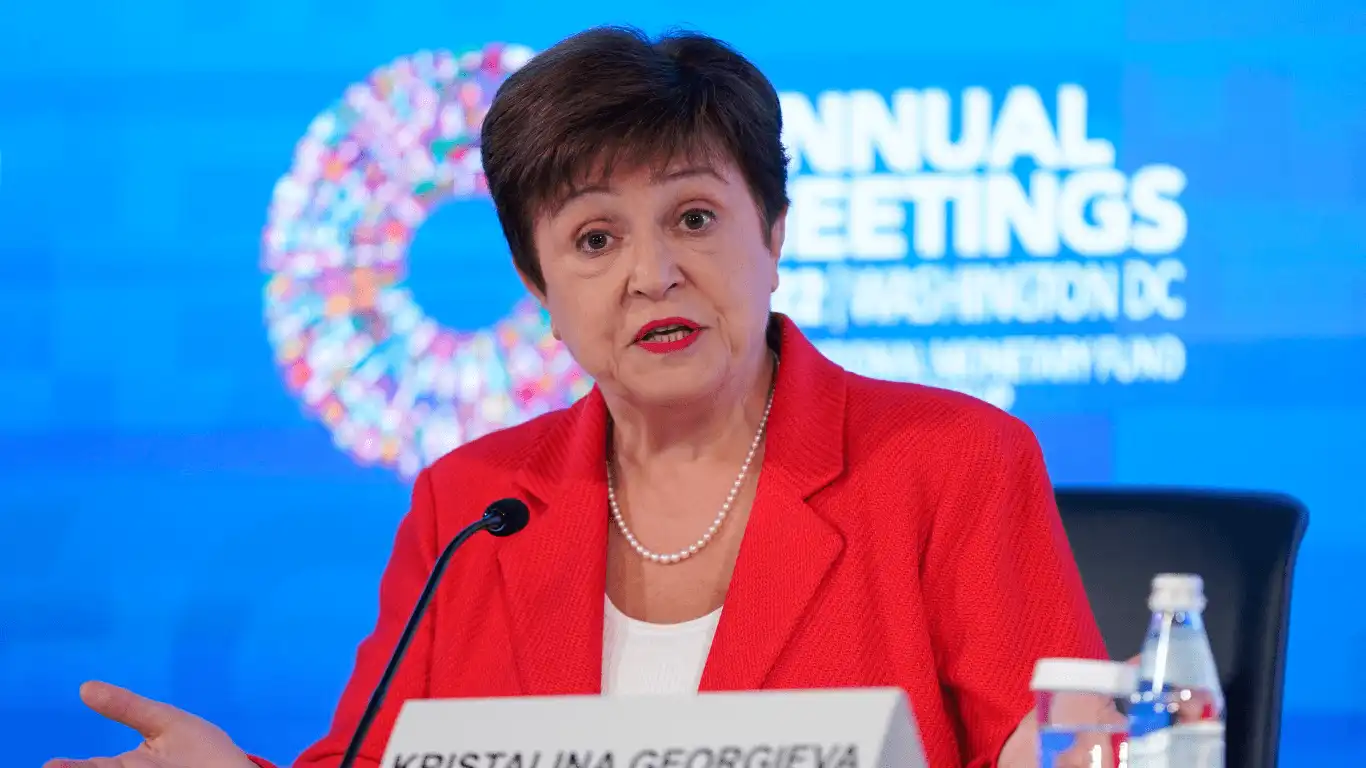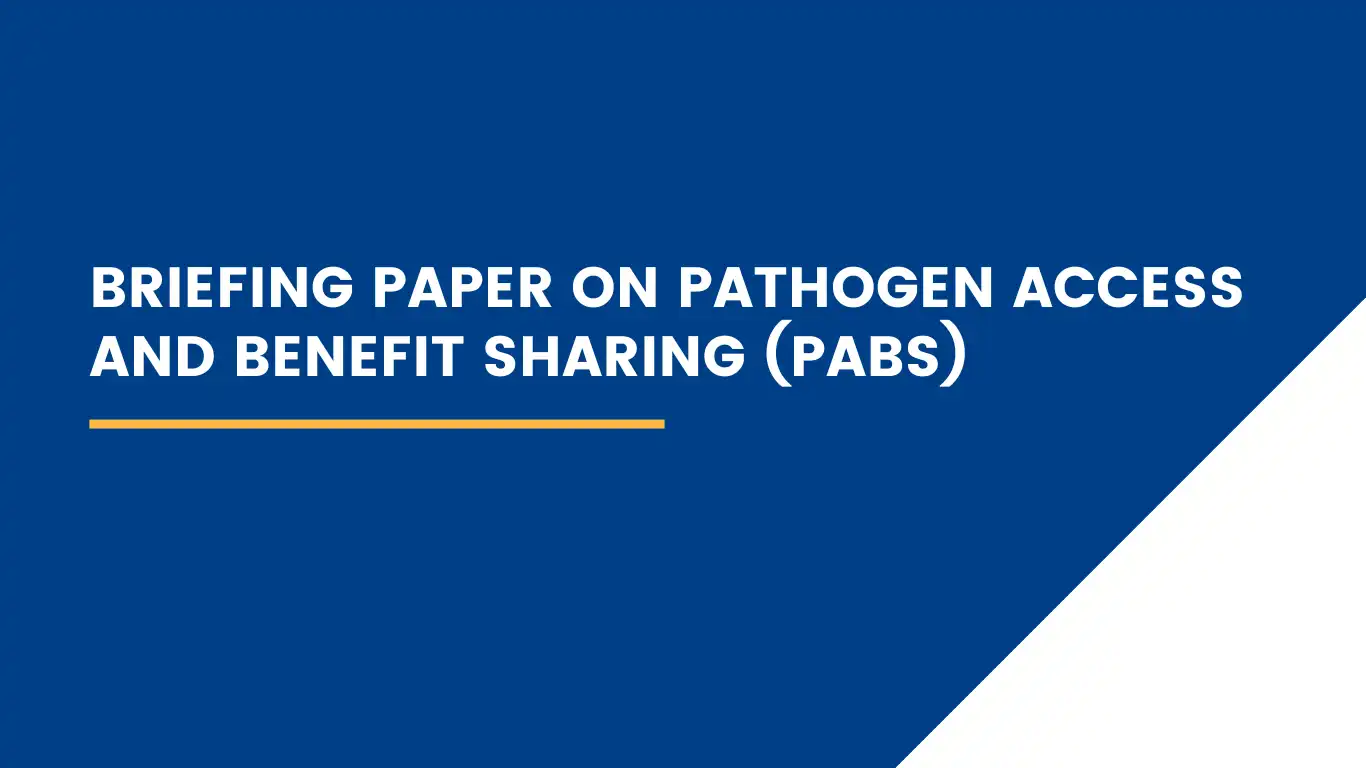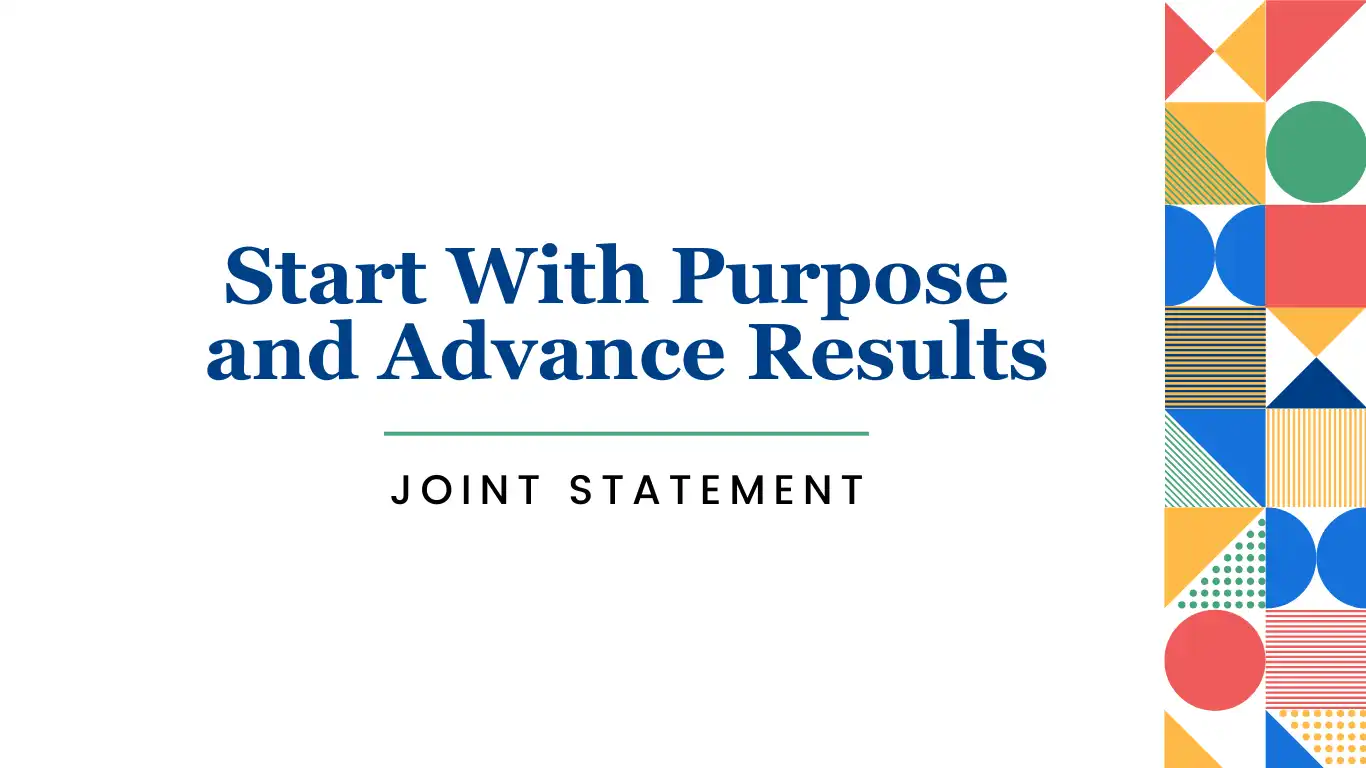The World Bank Group and International Monetary Fund (IMF) Annual Meetings came back in full force and in person Oct. 10-16, with road closures and large black security vehicles once again clogging streets of downtown Washington, D.C. As a veteran of the meetings — and a global health and development advocate — the week left me in turn feeling depressed, bewildered, and cautiously hopeful.
Here are my top 5 takeaways:
- Shock and gloom. The revised projections for global economic growth from the IMF were pretty dire: a sharp slowdown from 6% in 2021 to 3.2% in 2022, and set to decline again in 2023, with inflation rates higher than in several decades and triggering an acute cost-of-living crisis. IMF Managing Director Kristalina Georgieva minced no words about the dangers afoot, saying there has been “shock after shock after shock” leading to historic fragility, a likely recession, and expectations of a global output loss of about US$4 trillion (about the size of Germany’s economy) over the next four years. The new edition of the World Bank’s Poverty and Shared Prosperity report found that since the onset of the COVID-19 pandemic in 2020, progress toward reducing global poverty has essentially halted and global inequality increased. The headline on the World Bank’s own website — Development in Crisis — pretty much sums it up.
- What pandemic? There was much hand wringing on what to do about the worsening poly-crises confronting the world today. Among the headlines were the launch of the IMF’s new Food Shock Window and the World Bank’s Second Ministerial Roundtable on Support for Ukraine, while the discussion at the Development Committee focused around two papers on the Food and Energy Crisis: Weathering the Storm and Achieving the Climate and Development Goals: The Financing Question. Notably absent from the conversations and commitments, however, was the ongoing COVID-19 pandemic (and when it did get a mention, it was mostly referred to in the past tense). A few important exceptions were the excellent speeches at the Center for Global Development delivered by three women leaders: U.S. Treasury Secretary Janet Yellen, Indonesian Minister of Finance Sri Mulyani, and German Minister for Economic Cooperation Svenja Schulze, all of whom highlighted the need to increase investments in pandemic preparedness. There was also a spotlight on the learning losses as a result of prolonged pandemic-related school closures.
- Next generation of protests. Two decades ago, protests were a common sight outside the Spring and Annual Meetings, pressing for debt relief and an end to structural adjustment and globalization. In the wake of major policy shifts like the adoption of the Heavily Indebted Poor Countries Initiative, increased disclosure and stronger accountability mechanisms, and the inclusion of civil society in the Meetings — which I was proud to help facilitate — over time those protests had largely shifted to constructive dialogue. The protesters were back on the streets (and in the building) this year, once again demanding debt cancellation and climate action — further fueled by World Bank President David Malpass’ widely criticized comments during the United Nations General Assembly.
- A few billion here and there. Recent Annual and Spring Meetings had produced some significant commitments to help countries struggling to cope with the economic impact of the COVID-19 pandemic, namely through a general allocation of special drawing rights (SDRs) equivalent to US$650 billion and creation of a Resilience and Sustainability Trust (RST) at the IMF to be funded by channeling SDRs from wealthy countries to low- and lower-middle-income countries. Georgieva announced that the RST was now operational with US$37billion in pledges (of which US$20 billion has been delivered thus far) and that agreements had been reached for the first three countries — Barbados, Costa Rica, and Rwanda — to receive support from the RST. Also in September, the World Bank formally launched a new Financial Intermediary Fund for Pandemic Prevention, Preparedness, and Response (Pandemic Fund). With less than US$1.5 billion pledged so far and a first call for proposals not slated until late this year or early next, the Pandemic Fund still has a long way to go to reach the annual financing target of more than US$10 billion to close critical preparedness gaps and achieve its transformative potential. We are told more donors and pledges are expected soon, yet discussions on a sustainable financing pathway are some months away. But, on the bright side…
- Reform is in the air. An undercurrent across the Meetings was that the two Bretton Woods Institutions created in 1944, are no longer fit-for-purpose in 2022 to address a “world on fire” as the Vulnerable 20 (V-20) group of nations put it at their ministerial. Secretary Yellen set the stage with her pre-Meetings call to action to “rethink our overall development finance strategy” and “evolve our multilateral development bank (MDB) system” to meet this moment of unprecedented global challenges — with the highly interconnected threats of climate change, pandemics, and fragility topping the priority list. Variations on this theme were echoed throughout the week by an array of leaders including former U.S. Treasury Secretary Larry Summers, Schulze, and many others. The wonky-sounding Independent Review of the MDB Capital Adequacy Frameworks, commissioned by the G20, gained support for a set of actionable MDB reforms that could unlock hundreds of billions of dollars in additional capital for global public goods. Barbados Prime Minister Mia Mottley also doubled down on her call to leaders from the global South and North to come together and build a movement around the Bridgetown Agenda to modernize the international financial institutions with “the urgency of now”. The conversation moved beyond the rhetoric: A coalition of countries led by Germany G7+ Presidency requested the World Bank management to produce a roadmap for reform by December this year.
Will any of this actually lead to significant change? Time will tell, but something feels different. Pandemic Action Network is committed to heed Prime Minister Mottley’s call to action and help build the political will and the movement to make it happen. One thing we are sure of: From the climate crisis to the COVID-19 crisis to the next pandemic, the world can’t afford to wait.



